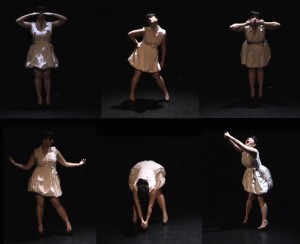MFA Monday
Hey there Framers! Hope everyone had a delicious and relaxing Thanksgiving weekend. Here’s the third and final installment of Rosie Trump’s arc, So You Think You Want a M.F.A? Read some great advice on post-M.F.A life!!
So You Think You Want a M.F.A.?
Part III: It’s the end of the world as we know it and I feel fine
By Rosie Trump
You survived. You graduated. You are a Master of the Fine Arts. You have probably grown significantly in the past three years. Your practice, your location, your outlook, your teaching, your motivation, your significant other—all the contents of your life may have shifted during your journey through graduate school. So now what?

In the first few months post-M.F.A., I suffered from severe withdrawal. I have never considered myself a slave to routine, however I had inadvertently become addicted to the straightforward, well-organized schedule of my graduate school life. I now found myself with a lot of unstructured time on my hands. I felt simultaneously relieved, disappointed, anxious and excited.
The (Creative) Hangover
Transitioning into post-M.F.A. life may bring with it a sort of creative hangover. The past three years have been jam-packed with making, doing, and having others tell you what they think of your work on strict timelines. Now, it’s back to just you deciding when, where and how to make your work happen. For me, making my first post-M.F.A choreography was really, really challenging. The difficulty emerged partly because I had to find new (and cheap) ways to book rehearsal space and dancers, and partly because of the crazy amount of pressure I placed myself under to create something ‘worthy’ of my shiny new degree.
You may find yourself a little burnt out, needing time to process or wanting distance from the voices of your former faculty. This is ok! Give yourself some (but not too much) time to grieve, rest, replenish and refocus. Then get to work!
Time and space will be two major challenges post-M.F.A.
Time: Sans those external deadlines, you may find your creative work taking a backseat to figuring out how to pay the rent/relocating/social events.
- I am a huge fan of creating a daily creative habit. I highly recommend Julia Cameron’s The Artist’s Way and The Vein of Gold, as well as Twyla Tharp’s The Creative Habit. These ‘courses’ get your writing, generating ideas and creating everyday.
- Join Fieldwork (if you don’t live in a participating city, maybe you can start a new one.) Fieldwork is an amazing format for receiving feedback and networking with fellow artists!
- Follow an inspiring blog. I recommend this one.
Space: Remember all those resources you had at your fingertips in graduate school? Oh those were the days…
- Yoga studios, youth dance schools, recreation complexes and fitness centers usually have ‘off’ times during the day where they can offer you discounted rental rates.
- Teach a class in exchange for rehearsal time.
- Barter with dancers. Can you offer flyer design, photography, videography or babysitting in exchange for payment?
It’s an academic life for me or It’s the hard-knock life for us
Getting a tenure-track job in academia is akin to a college football player getting drafted into the NFL. It happens to some, but for most, it doesn’t. I think this is a terrific analogy for describing the odds of landing full time, permanent academic employment (and useful for explaining to your family why you are still un/under-employed.)
If an academic career is for you, hopefully you began preparing for this path long before graduation. Picking up an adjunct position, preparing job materials, running mock interviews with your faculty, etc. Academic employment has a steep learning curve, with little room for error, so it is imperative you are on the offense from the very start. While for many art fields the M.F.A. remains the terminal degree, the rise of the dance and music composition Ph.D. continues to edge M.F.A. candidates out of the academic market.
The Adjunct Trap: As a former adjunct, I personally can vouch for the benefits of this kind of position: teaching experience, relatively high wage for number of hours worked, eager students, opportunities to choreograph for students/perform at faculty concerts. I can also personally vouch for the limitations: lack of benefits/health insurance, uncertainty of classes/employment from semester to semester, time and gas spent driving between schools, lack of access to office space, being at the mercy of shrinking budgets. Adjunct positions rarely turn into full time jobs at the same institution.
Helpful links:
The Professor Is In—this blog is worth it’s weight in gold for the M.F.A. interested in pursuing tenure track jobs.
The Chronicle of Higher Education’s On Hiring Blog
This article asks how Adjunct pay their rent (contains excellent links).
Do the Hustle
The Hustle is the most important dance you will ever learn. I am sorry to say, but a huge part of your post-graduate school situation may look and feel just like your pre-graduate school situation. While your new credentials will certainly open a few more doors, you will still need to hustle for everything you want to do. Need rehearsal space? Do the Hustle. Ready to take your dance company to the next level? Do the Hustle. Need funding to tour your latest dance? Do the Hustle.
You need a mentor!
- Whatever your career goals, find a professional (or two) in your community or extended network who is doing or has done what you want to do. Ask them to mentor you.
- Set up regular meetings with your mentor to ask questions, check in, get advice on upcoming projects, etc.
- Build a new 5 Year Plan under the advisement of your mentor.
- Pay it forward–become a mentor to a ‘younger’ artist.
Working your network
- Regularly stay in touch with your former M.F.A. cohort—for both professional and emotional support.
- Don’t be afraid to ask others for what you want.
- Initiate the conversations. Send the follow up emails.
- Ask yourself what you can offer to your dance community and become known as an artist who gives back. (This kind of currency is more powerful than you may realize.)
Apply, apply, apply
- Many years ago, I had a mentor (who I viewed as extremely successful) tell me that for every thirty things she applies for, she may get one acceptance. While at the time I was floored, experience has confirmed this ratio to be pretty accurate.
- Rejection is a bitter pill. Don’t take it personally.
- Invest the hours, the time and the money. Keep doing it. Your outcomes will get better and better.
Helpful links
Residency Unlimited– artist residency listings
Mira’s list– grants and artist residency listings
Res Artis– artist residency listings
Alliance of Artists Communities– artist community and residency listings
Advice on applying for grants and fellowships (including a grant application template)
MFA Mondays
